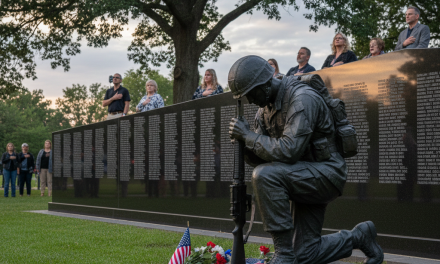by Lazar Jovic
You may have it on a PC, tablet, or phone. Perhaps you make daily use of it or at least once a week. If not, you undoubtedly know someone who does. It saves paper, is reasonably priced, and boasts practically limitless capacity. You can modify brightness, color, or size. You guessed right—we are discussing e-books.
While e-books have been around for decades they grew rapidly in the late 2000s. In 2007, Amazon Kindle, the first e-reader by Amazon, appeared on the market and sold out in less than six hours. In 2010, Apple launched the iBooks app, later renamed to Apple Books. According to data collected by Statista, more than one billion people use e-books today.
Lydia Colic, 24, is a graduate student completing her master’s degree in library and information science.
“The Internet changed a lot. Librarians might spend more time on the computer than dealing with the printed work during a usual work day,” she explained. “I think the last time I bought a book in the bookstore was months ago. I do order printed books online, but I rarely enter the bookstore and buy books nowadays.”
Elisa Sottana, 33, runs a bookstore near Venice, Italy, with her partner. She’s been in the business since 2015. Her customers are mostly “people between 40 and 70, but also a good amount of families with children” she noted.
Sottana reflected on the future of brick and mortar bookstores and is optimistic about the future..
“Despite the fact that numerous people had already declared the death of printed books and bookstores with the arrival of e-readers, the market hasn’t changed that much,” she said. “There certainly are a good amount of people who have turned to these new means of reading, but they are a minority. I’m thinking especially of people with sight issues or who travel frequently and can’t carry heavy books around.”
At the same time, Sottana said that the e-book market changed the expectations customers have of traditional bookstores.
“The shipping rates and times Amazon offers are delirious, and often people expect any average bookstore to keep up with them,” she said.
Sottana added that people don’t realize that notion “is inhuman and unsustainable on so many levels.”
Finally, Sottana encouraged booksellers to “build a relationship with whoever enters your shop,” which she indicated was instrumental to her store’s success.
“Intercept their taste, learn their names, and care for them,” she urged. “They will come back. It might sound cliché, but Amazon or any other online shops don’t offer smiles and there is certainly little personal interaction. A true bookseller will help you through a reading journey, and give you time and attention.”
Cut line: Used and antique books are shelved at a traditional brick and mortar bookstore. (Photo credit: CrimeReads.)



